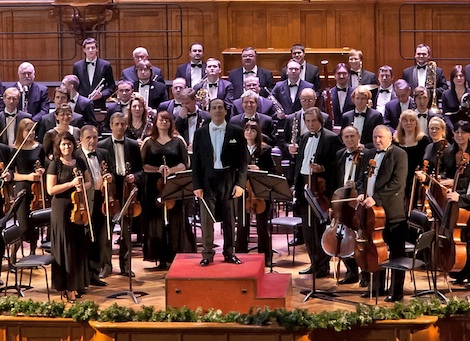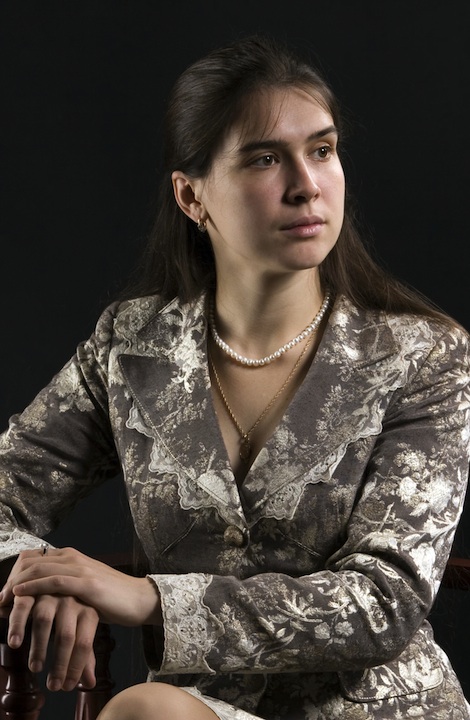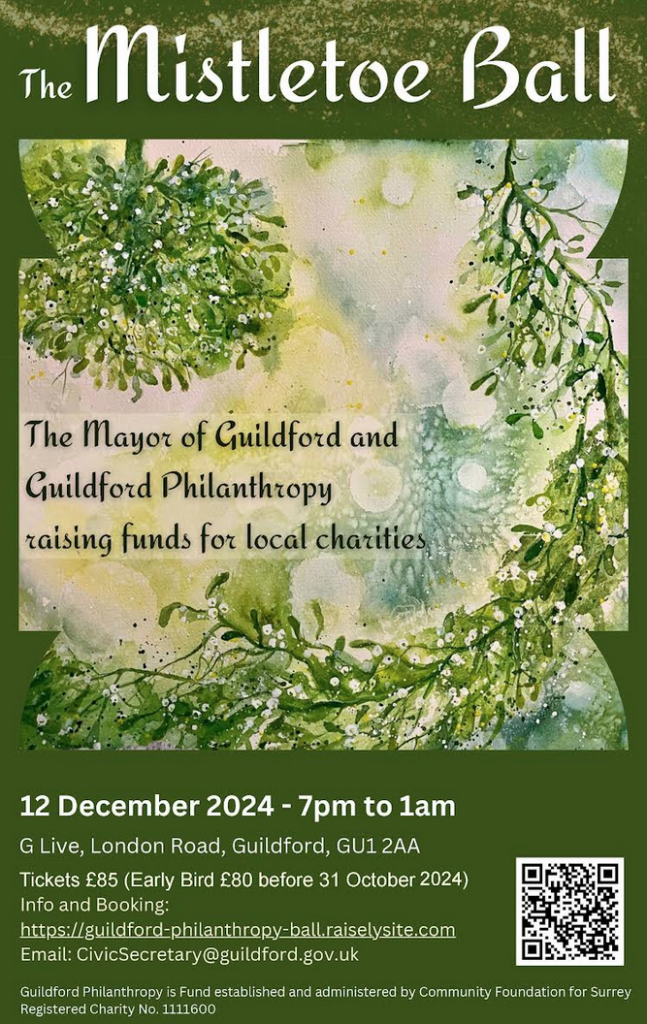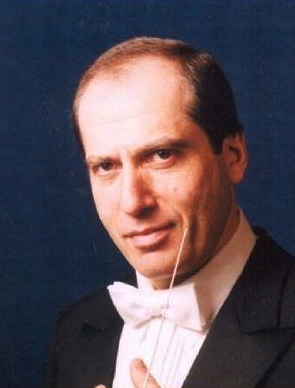 Abraham Lincoln
If given the truth, the people can be depended upon to meet any national crisis...
Abraham Lincoln
If given the truth, the people can be depended upon to meet any national crisis...
 Guildford news...
for Guildford people, brought to you by Guildford reporters - Guildford's own news service
Guildford news...
for Guildford people, brought to you by Guildford reporters - Guildford's own news service
Review: Moscow State Symphony Orchestra – G Live
Published on: 14 May, 2013
Updated on: 14 May, 2013

The Moscow State Symphony
by The Stage Dragon
Paval Kogan built his reputation as a violinist of world renown, and simultaneously was becoming one of the most respected and widely known of Russian conductors. Indeed, he is included in the authoritative British Classical TV channel’s list of ten greatest conductors of the 20th century.
His orchestra, the Moscow State Symphony Orchestra, is loosely ranked as No.5 out of the five orchestras in Moscow. Soloist Tatiana Kolesova, a laureate of some major international piano competitions including Minneapolis, Pretoria, the Grieg Competition, and the Rubinstein Competition, was once the youngest player at the Leeds Piano Competition.
This then is the background to last night’s concert, the culmination of the G Live and IMG 2012/13 International Concert Series.
First up on Sunday (May 12) in this traditional 3-layered format of overture-concerto-symphony was Rimsky Korsakov’s Introduction – The Three Miracles. A good choice: something unfamiliar to British audiences with fireworks to impress.
The orchestra was certainly well-drilled. One assumes that they have played the piece a thousand times with this conductor since they paid him scant attention. But they did remain largely together.
I found their style of playing, so far after the beat, most disconcerting. In fact, I found Maestro Kogan’s conducting quite difficult to watch. To the ear, the result was actually impressive, so the preparation and match practice paid dividends. They played on a flat stage (no risers) which meant that the wind section was sometimes rather difficult to hear with any clarity.
Having a violinist turned conductor at the front may have influenced the projection of the violins. They were generally prominent and made a good team sound – not particularly warm or attractive, not harsh either, just verging on functional but at times they overpowered the other strings. The cellos seemed weak by comparison, although that could have been where I was sitting. The string numbers were 12.10.8.8.7 yet the balance was still top-heavy.

Pianist Tatiana Kolesova
Secondly we heard the Rachmaninov Piano Concerto No.2 – a warhorse with Aaahh factor – remember Brief Encounter? Tatiana Kolesova produced some bold, decisive playing and the piano came across well, occasionally overwhelmed by violins, but general balance was good, the pace well judged, and a sprightly start to the finale was exciting. I couldn’t see the players, but I particularly liked the horn solo (well held!), the lovely clarinet tune, and that juicy low flute corner, all nicely done. I enjoyed Ms Kolesova’s performance, but my companion had reservations. Music is such a personal thing.
Tchaikovsky’s Symphony No.6 (Pathetique) should have been the climax of the evening, but it was not so exciting, and the MSSO seemed to be on autopilot. There were some abrupt tempo changes in unexpected places, call it ‘flexible’ interpretation, but the impression given was scruffy ensemble, some indistinct detail, too many gear changes and overdone effects. Some passages were incredibly fast and furious – really impressive had they worked – but the result was superficial and skittish.
The third movement, especially, lost impact by phrases falling over themselves in a rush to the finish. The emotional potential of this piece is immense, yet the finale left me cold. There were very nice chords from the low brass (perfect intonation and mellow sound), but otherwise it was all power and no pathos, and I became acutely aware of G Live’s electronic reverberation. For me the contrived effects cheapened the music, but generally the audience was extremely happy with the concert, and the two encores were appreciated.
There were smiling faces in the departing crowd, but sadly not too many amongst the orchestra. The downbeat nature of the musicians was striking, perhaps with good reason. Economic conditions for such players in Russia are unenviable.
Apparently, by this April several Moscow orchestras, including the MSSO, had not received their ‘presidential grants’ since last December, so may only be receiving their meagre salary (apparently 3000 RUB [about £62] a month). The supplementary ‘presidential grants’ were well in arrears by April. I trust G Live/IMG pay them enough to eat and put them in one of Guildford’s pleasant hotels.

"Found any?" - "Nope, it all looks green to me!" (See Opinion: The Future is Congested, the Future is Grey)




Recent Articles
- Ash Level Crossing Will Not Close in December, SCC Assures Residents
- Sara Sharif Trial Latest – The Judge Reviews the List of 71 Injuries Found on Sara
- Column: Guildford’s MP Writes – Championing the Needs of Guildford and Our Villages
- City Win at Last With Three Penalties in Cup Tie
- Letter: Development of Gosden Hill Could Be an Opportunity for Improvement
- Ash Level Crossing Row: GBC Rejects Cabinet Member’s Statement As ‘Factually Incorrect’
- Letter: What Will Be Done for Burpham Residents Now?
- County Council Cabinet Confirms Its Decision on London Road Scheme
- Postcode Lottery Police Funding – It ‘Cannot Be Fair’ Says Police Commissioner
- Heartbreak for City Again as Two Extra-time Goals Snatch Victory


Search in Site
Media Gallery
Dragon Interview: Local Artist Leaves Her Mark At One of England’s Most Historic Buildings
January 21, 2023 / No Comment / Read MoreDragon Interview: Lib Dem Planning Chair: ‘Current Policy Doesn’t Work for Local People’
January 19, 2023 / No Comment / Read MoreA3 Tunnel in Guildford ‘Necessary’ for New Homes, Says Guildford’s MP
January 10, 2023 / No Comment / Read More‘Madness’ for London Road Scheme to Go Ahead Against ‘Huge Opposition’, Says SCC Leader
January 6, 2023 / No Comment / Read MoreCouncillor’s Son Starts Campaign for More Consultation on North Street Plan
December 30, 2022 / No Comment / Read MoreCounty Council Climbs Down Over London Road Works – Further ‘Engagement’ Period Announced
December 14, 2022 / No Comment / Read MoreDragon Interview: GBC Reaction to the Government’s Expected Decision to Relax Housing Targets
December 7, 2022 / No Comment / Read MoreHow Can Our Town Centre Businesses Recover? Watch the Shop Front Debate
May 18, 2020 / No Comment / Read More







Recent Comments